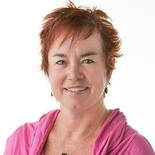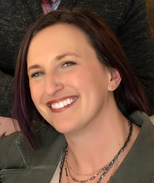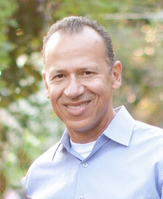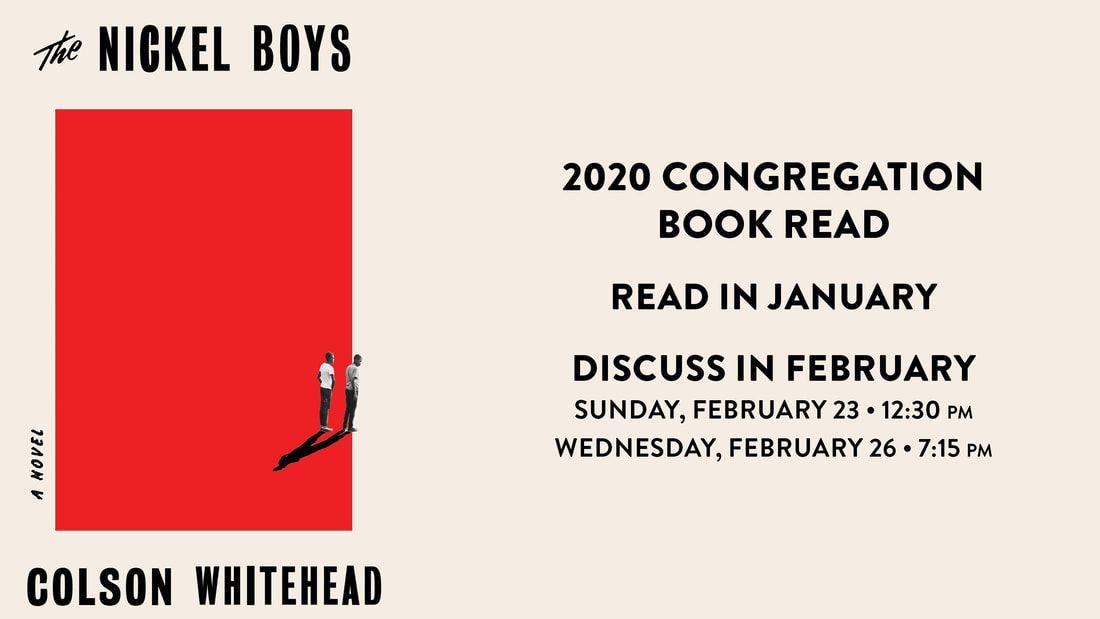|
By Peter Heege The Intercultural Development Inventory (IDI), developed by Mitchell R. Hammer, professor of international peace and conflict resolution at American University, assesses intercultural competence as the capability to shift cultural perspective and appropriately adapt behavior to cultural differences and commonalities. To help us grow our ability to be an anti-racist, multicultural spiritual community, a number of key ministry groups at Unity Church are being invited to take the IDI. The sessions are also available to individual congregants. In the February issue of commUNITY, Mary Pickard discussed how Unity hopes to use the IDI. This article expands on that with an introduction to our three IDI qualified administrators and the role they will play. Our Qualified IDI Administrators  Betsy Hearn is a lifelong learner who actively pursues opportunities to grow as a human. She is a learning and development professional with experience across the non-profit, higher education and corporate worlds. She has worked in leadership development, organizational development and diversity and inclusion for the past thirty years. She has been an IDI qualified administrator since 2017 and has facilitated workshops, debriefs and coaching for individuals to understand the benefit from the Intercultural Development Inventory (IDI).  My name is Kelley Nelson and I am a member of Unity Church and qualified IDI administrator. I am excited to offer you the opportunity to take the IDI assessment and receive feedback from me over the next few months as we work together to become even more effective in our cross-cultural work. Here is a little bit about myself: Kelley Winchester Nelson has spent her career advocating for educational equity and developing cultural competency in a myriad of settings and diverse circumstances. Upon graduating Cum Laude from Colby College with a BA in Sociology and a minor in Women's Studies, Kelley spent seven years with The Steppingstone Foundation in Boston recruiting, preparing and supporting youth from under-resourced communities as they applied to and matriculated from top independent schools in the area. Kelley served as a teacher, advocate, and cultural broker working with families to identify their educational goals and finding the right match in academically rigorous, though predominantly white and upper class, private schools, while simultaneously challenging those schools to change their cultures and environment to be truly diverse and welcoming spaces. When her family relocated to the Twin Cities, Kelley joined The Blake School's lead administrative team as the Co-Director of the Center for Diversity creating change from within at a prestigious independent school. It was there that in 2006, Kelley became a qualified Intercultural Development Inventory administrator and became a student of the developmental model of intercultural sensitivity. Kelley has since applied her knowledge and expertise in the development of cultural competency coupled with a deep understanding of white privilege, power, and oppression, in work with teachers and students in St. Paul Public Schools, the East Metro Integration District, and currently in her roles with several youth development programs in the Twin Cities.  Tim Wendt is an experienced HR professional with experience working with executive leaders in the corporate environment. He helped to lead executives at a Fortune 500 company through a cultural competence journey that led to the organization developing a cultural competence and DEI roadmap. With more than 30 years of human resources experience he brings both breadth and depth to corporate and DEI initiatives. He is an IDI qualified administrator and has facilitated hundreds of workshops for thousands of employees. Interview with Kelley Nelson
PH: What’s your take on the IDI in general and its potential benefits for Unity Church? KN: I’ve been working with the IDI for 15 years. It’s an extremely useful tool for people to understand how they make sense of cultural difference based upon their life experiences. It encourages a wider definition of culture and is a roadmap for developing that wider view. It helps people understand how the experiences they have had during their lives influence how they interact with other cultures. Once people understand themselves better it enables more effective interaction with other cultures. Our Ends statements call on us to develop a more multicultural, multiracial congregation. Unity’s population has historically (and currently) been very homogeneous, and realistically our outreach efforts have been based on our own perspectives and have not been terrifically successful in attracting people with a wider variety of backgrounds and perspectives. When groups and individuals become more effective in interactions, the congregation can be more effective in attracting the diverse population we strive for. PH: What results have you seen with other organizations you’ve worked with? KN: I’ve primarily worked in the education area. There were many “aha” moments in those trainings, unearthing embedded ideas and stories that negatively affect cultural competence. Individual sessions were very effective, and when there was a committed and cohesive group that was guided by the learnings from these sessions, the organization attracted and retained a diverse culture. PH: Tell us about a group profile feedback session. KN: A group session, usually about 1-1/2 hours, typically includes a quick review of the concepts of culture (iceberg model) and a review of the stages on the IDI continuum from denial through minimization to acceptance/adaptation. A group profile is developed using the distribution on the development continuum of individual profiles of group members. After discussing the group result, and the variances in individual results, the group is coached on how to use these results to enable more effective group action. PH: What are the options for an individual feedback session and why would it be helpful? KN: Those participating in group feedback sessions will be offered the opportunity for individual feedback sessions on a pay-as-you-are-able basis, with scholarships available from Unity's Helener Currier Endowment. The individual sessions are approximately one hour and will include discussion of your individual experience, how it is tied to your IDI profile, and development of a plan for using this information to increase your effectiveness in multicultural work. These feedback sessions have been shown to be the single most effective way to facilitate growth along the IDI continuum and to promote meaningful participation in group work toward our Ends. These sessions are also available to individual congregants on the same basis, and those interested are strongly encouraged to schedule one for themselves. Contact Drew Danielson at [email protected] for more information or to sign-up.
1 Comment
The Nickel Boys by Colton Whitehead
Doubleday, 2019 By Shelley Butler Before I even ordered a copy of The Nickel Boys, I read its many accolades: longlisted for the National Book Award, Kirkus Award-winner, National Book Critics Circle Book Award finalist, one of the Top Ten Books of the year of Time magazine, New York Times bestseller (of course), and great book reviews. They had me at the National Book Award but this one stood out to me the most: “A necessary read.” — President Barack Obama The “Nickel boys” refers to a group of boys in, and later survivors of, a horrifying fictional reform school in Florida. We meet Elwood in the early 1960s at the home of his grandmother, who is raising him. He is an earnest boy with plans to go to the local black college, and he is discovering hope and power through the words of Dr. Martin Luther King, Jr. Through no fault of his own, he is arrested and sentenced to the Nickel Academy, a juvenile reform school for boys as young as five years old, with no fixed term of detention. Boys are supposed to be educated, earn their way up a ladder of good deeds to get out, and turned back into the world as good men. Elwood soon learns that Nickel is as abusive, corrupt, and criminal a place as could possibly exist. The “reform school” is segregated, but Whitehead makes clear that being white doesn’t give you much, if any, advantage at a place like this. The Nickel Boys doesn’t take you into this house of horrors for no reason. Elwood sees and experiences some of the worst of it, but still hangs on to King’s message of maintaining dignity against all odds, and especially his words, “Throw us in jail and we will still love you.” His friend Turner is of an opposite point of view, just trying to stay alive and out of trouble in any way he can. The story revolves around the two points of view and the events that lead them to a startling conclusion. The reader will have to decide for themselves if either of them, or if both of them, is right. And if you think by the end of the book that a place like this could not exist in the United States in our lifetimes, think again. This story was based on the traumatizing, life-altering true experiences at Dozier Academy. That it operated for 111 years and only closed in 2011 is only part of the anguish. The true stories of the “White House Boys,” survivors of the violence, tell of beatings so severe that some boys were beaten to death. The institution didn’t keep records of everyone who died there, some of whom were buried in unmarked graves. A team of forensic anthropologists began an investigation into deaths at the school, and the unmarked graves, and uncovered more and more bodies. The whole truth of the place may never be known. How does this happen? Why were reports of abuse over the past 60 years not taken more seriously, the perpetrators of violence not brought to justice, and the institution closed? I think Whitehead’s point is that it did happen, and present-day America is not without its own versions of Nickel/Dozier boys cruelty. When this title was recommended to the Beloved Community Staff Team, the Library and Bookstall Team, and the Racial and Restorative Justice Team, co-sponsors of the 2020 Unity Church Congregation Read, we all agreed it was a good choice. Books are for sale in the Unity Bookstall and a limited number to check out from the Anderson Library. Please join the book discussions coming up on Sunday, February 23, at 12:30 p.m. and/or Wellspring Wednesday, February 26, at 7:15 p.m. Haven’t read or finished it yet? Come anyway — these are sure to be thought-provoking, maybe even action-provoking discussions.
Friday, February 14 • 7:00 p.m. • Robbins Parlor
A documentary about cultural survival and stolen children, Dawnland takes the viewer inside the truth and reconciliation commission for Native Americans. This film was awarded an Emmy for outstanding research in 2019. |
Topics
All
Beloved Community ResourcesUnity Justice Database
Team Dynamics House of Intersectionality Anti-Racism Resources in the Unity Libraries Collection Creative Writers of Color in Unity Libraries The History of Race Relations and Unity Church, 1850-2005 Archives
July 2024
Beloved Community Staff TeamThe Beloved Community Staff Team (BCST) strengthens and coordinates Unity’s antiracism and multicultural work, and provides opportunities for congregants and the church to grow into greater intercultural competency. We help the congregation ground itself in the understanding of antiracism and multiculturalism as a core part of faith formation. We support Unity’s efforts to expand our collective capacity to imagine and build the Beloved Community. Here, we share the stories of this journey — the struggles, the questions, and the collaborations — both at Unity and in the wider world.
The current members of the Beloved Community Staff Team include Rev. Kathleen Rolenz, Rev. KP Hong, Rev. Lara Cowtan, Drew Danielson, Laura Park, Lia Rivamonte and Angela Wilcox. |
